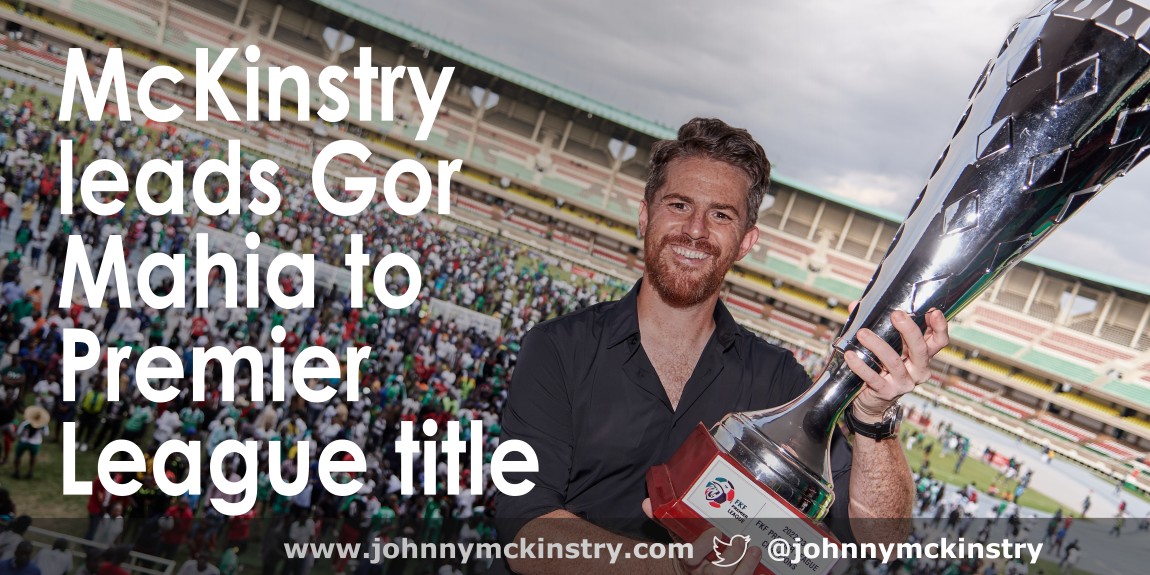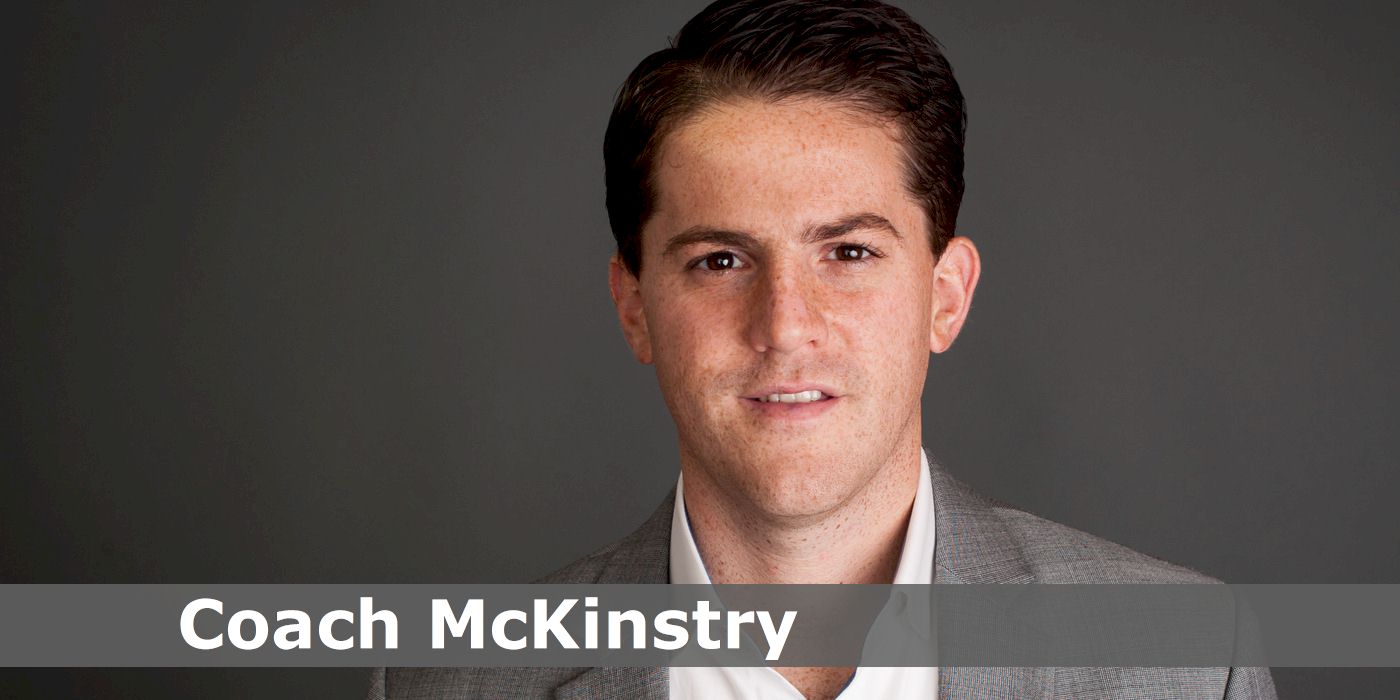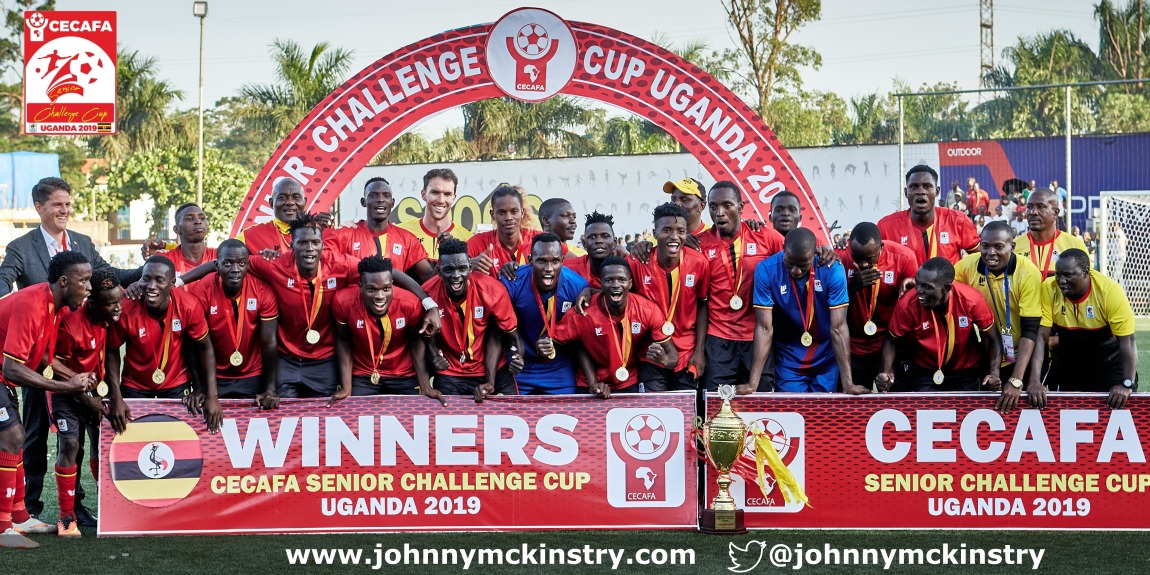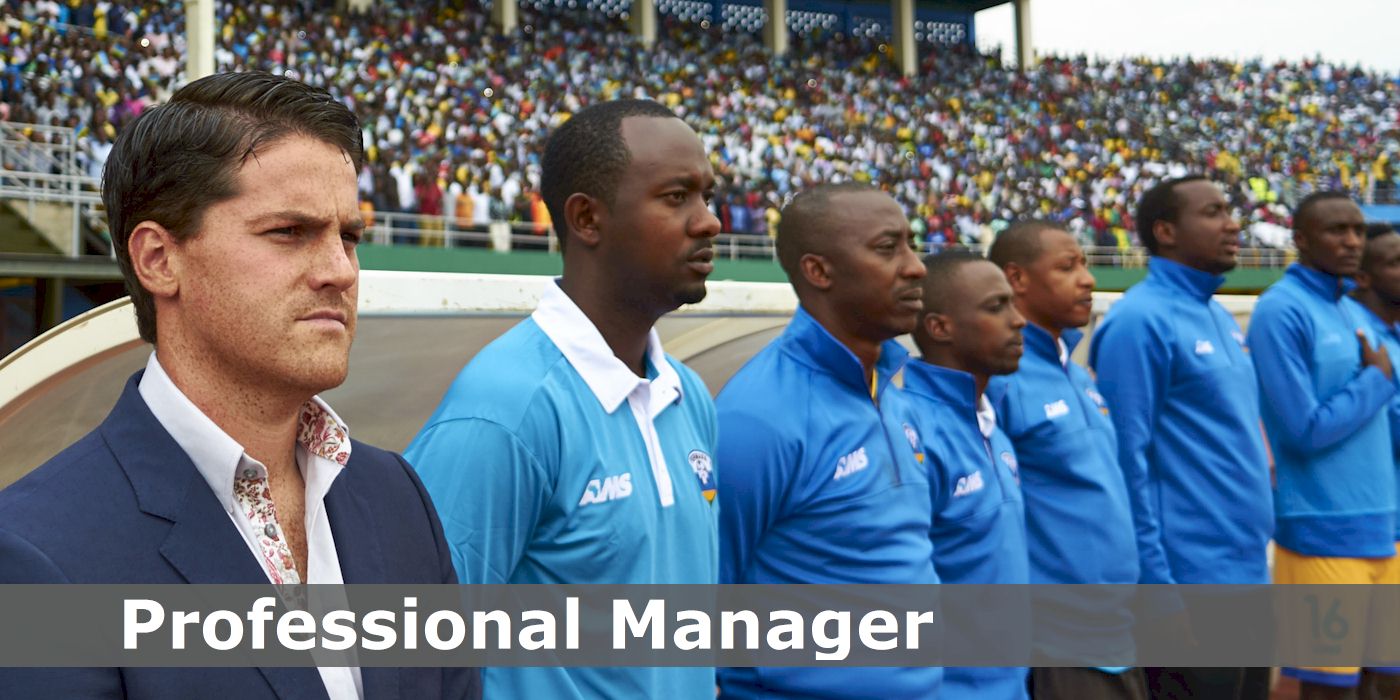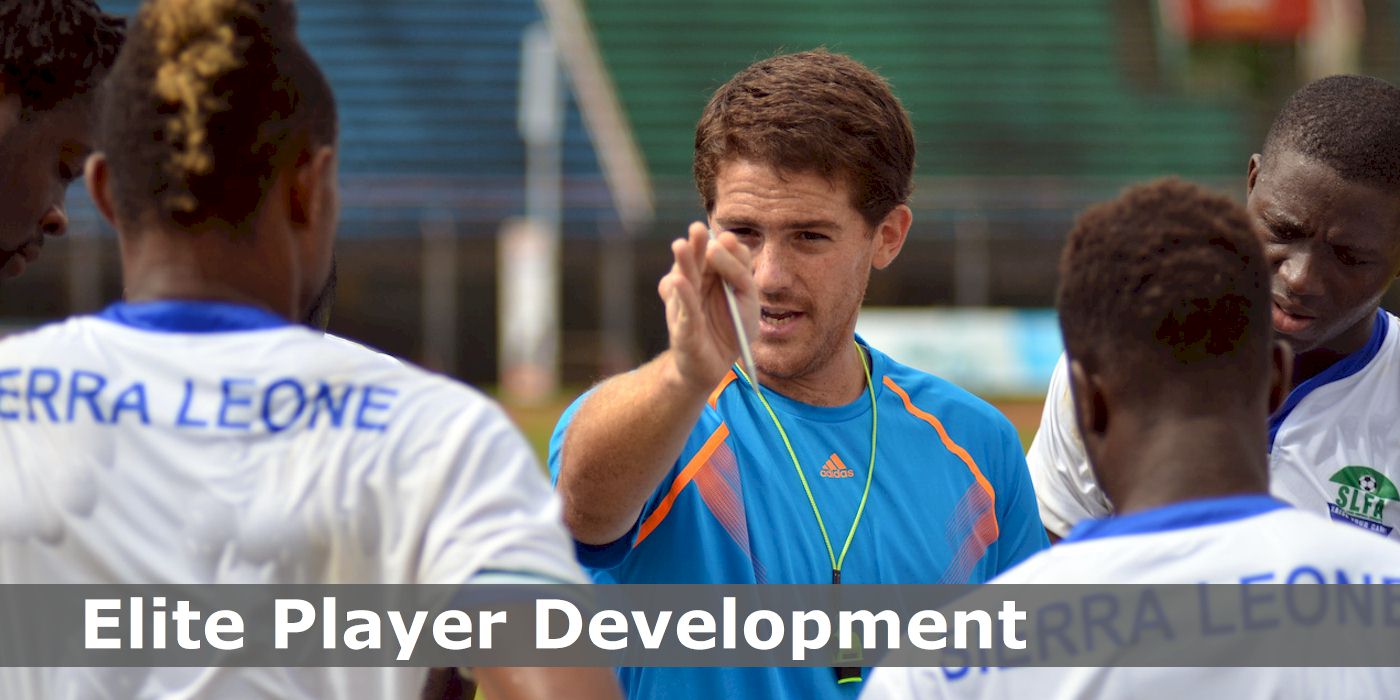Treated as pariahs after the outbreak of disease at home, could Sierra Leone’s footballers provide joy at a time of hysteria?
Nick Moore reports for Four Four Two… (21 Jan 2015) Source: FourFourTwo
“We are fighting to stay alive here, and people on the streets are getting frantic,” says Isha Johansen, President of the Sierra Leone Football Association (SLAFA). “You can understand why. We’re fighting an enemy you can’t see. When we had a civil war, we knew what the rebels looked like. Ebola is a psychological drain, and it is playing havoc. There is a constant fear. We don’t gather like we used to. Sierra Leoneans like to hug – we’re a touchy-feely people – but that has all gone.
"If you have the flu or something with Ebola-like symptoms, you get carted off and your family is shunned. There’s an air of doom on people’s faces. What terrifies people is the uncertainty.”
Football administrators often face testing scenarios, but when the boss of your FA is begging UNICEF to send aid, and warning her population to abandon their tradition of washing dead bodies before burial, it is a challenge on another level. The largest ever outbreak of Ebola, which began back in March, has seen the west African nation of Sierra Leone grind to a terrified halt.
Spread through direct contact, it can cause horrific haemorrhaging from the eyes and gums, and internal bleeding which leads to organ failure. By early November, the country of six million residents had seen 5,368 cases and 1,169 deaths. Borders were closed, foreign workers evacuated, and the economy crashed. Anxiety – thanks to the creeping nature of infection, and lack of a cure – is endemic.

Not ideal conditions, then, for the national football side to be deep into their 2015 Africa Cup of Nations (ACN) qualification campaign. Beyond the crisis itself, the reaction of the football community in Africa and beyond has been appalling. The Leone Stars have been shunned, ostracised and humiliated at every turn; home games have been moved abroad, and mockery has taken place from the boardrooms to the terraces.
Meanwhile, their administrative body has found itself bickering with the government. It is a sorry tale of gunpoint deportations, sackings, strikes and, er, David Beckham, from which few emerge with credit. The civil war may be over, but with no end to the epidemic in sight, Sierra Leonean football is fighting a battle on several fronts.
“They chanted ‘ebola’ non-stop for 90 minutes”
There’s never a good time for a deadly outbreak but this one couldn’t have been scheduled much worse for the Leone Stars. On August 4 the country’s president, Ernest Bai Koroma, declared a state of emergency.
Soon after, the SLAFA suspended all football fixtures within their borders, both for domestic sides and the international team, then managed by Northern Irishman Johnny McKinstry. There would be no home games at the 45,000-capacity Brookfields National Stadium: all matches would take place at their opponents’ grounds instead.
Meanwhile, the scaremongering began in earnest. Travelling to the Seychelles for their ACN pre-qualifier, the squad were held in Kenya for two days. “We felt like fugitives,” fumed midfielder Michael Lahoud.
On the advice of their health ministry, the Seychelles eventually forfeited rather than come into contact with Sierra Leoneans. It was perceived that their paradise-isle tourist economy couldn’t take the gamble. The squad was prevented from boarding their plane.
A bye into the ACN qualifiers proper was some consolation, but the discrimination wasn’t about to cease. On September 6, McKinstry’s men travelled to Ivory Coast for their first group fixture, and the Elephants’ FA attempted to prevent Sierra Leone from entering, ignoring the fact that the entire squad plays overseas and hadn’t been on home turf for months. The match was confirmed so late that players had to purchase their own flights.

Their welcome at the Stade Felix Houphouet-Boigny in Abidjan was hardly warm. “The opposition didn’t want to shake hands or swap shirts,” says Lahoud. “We were becoming the scapegoats and face of this disease.” Some of the Ivory Coast players requested fist bumps rather than handshakes. “Shaking hands is respect,” said dismayed midfielder Khalifa Jabbie afterwards. Ivory Coast won 2-1.
Worse was to follow four days later, as the side travelled to the DR Congo for a ‘home’ fixture in Lubumbashi. The journey itself was exhausting. All the direct four-hour flights had been booked, and the squad found themselves enduring a 50-hour odyssey via Tunisia. “We left the hotel at 11pm, flew at 2am, had a 10-hour layover, then found out our onward journey hadn’t been booked, so we waited another 13 hours,” McKinstry tells us. “The lads were shattered, mentally and physically.”
The reception they received at the Stade TP Mazembe certainly wasn’t uplifting. “We went out to warm up, and the chants of ‘e-bo-la’ – like ‘who are ya?’ – began,” says McKinstry. “The atmosphere was crazy – it was like facing Galatasaray. It was very difficult for the lads. And they were so tired; you could see it in their football. Our quality was missing. The boys suffered for their country.”
“It was the hardest game I’ve experienced in football,” Mustapha Dumbuya, the Notts County defender, tells FFT. “There were 25,000 people there, and they yelled ‘Ebola’ non-stop for 90 minutes. Sure, fans like to have a go, but when you’ve got an outbreak going on, it makes it hard to concentrate. Congo should know better. Ebola could be in their country within a month. People are dying. You’re crossing a line.”

The lack of home advantage was telling. “It affected us, not having the backing of our fans,” says Dumbuya. “They’re second to none and create such a phenomenal energy and noise in Freetown. We’ve gone unbeaten there for a long time. It’s difficult for visitors, because the pitch isn’t in the best condition and we know where all the bobbles are! But we can’t train properly, and our fans can’t make it out the country to cheer us on.”
A knackered side lost 2-0. “The whole thing was embarrassing,” says Mohamed Fajah Barrie, head of the Sports Writers’ Association of Sierra Leone. “Ebola originated in the Congo, so they shouldn’t have chanted. But the situation scuppered our chances of making it to the Africa Cup of Nations. In African football, away wins are very rare. We haven’t won away since 2001. It has wrecked a campaign that had a chance of succeeding.”
“This infighting is absurd”
Could matters deteriorate further? You bet. McKinstry, having overseen two defeats amid the harshest conditions imaginable, was sacked by the sports ministry after the DR Congo game. Spokesman Saidu Mansaray said it was due to “poor results”, and that the decision had been made jointly with the SLAFA.
McKinstry isn’t so sure. “Who knows what happened?” says the 29-year-old. “To be sacked over ‘results’ is laughable after what we’d been through. There is a lot of politics and infighting, and I’ll never work it out. I felt I’d developed a good, progressive atmosphere over 18 months. The SLAFA claim they weren’t part of the sacking, but I suspect they were.”
Any collusion between government and FA didn’t last. At the end of September, the ministry unveiled Atto Mensah as the new gaffer. Yet 16 days later – just a week before a vital double-header against Cameroon – the SLAFA installed John Ajina Sesay as manager.

Mensah had already named a squad, but the SLAFA’s media officer, Abu Bakarr Kamara, claimed that he wasn’t qualified. “We found out that Atto only has a UEFA Diploma B coaching licence, which only qualifies him to coach in an amateur league. We’ve rejected him and appointed Sesay. But we’re retaining the players invited by Mensah because we don’t have much time left for the Cameroon game.”
The government, who pay the player and staff wages, hit back. Deputy Sports Minister Ismail Al Sankoh Conteh claimed: “Mensah is qualified, and will take us through. The appointment of these coaches was done by both the ministry and the SLAFA, so they just want to confuse themselves. We’re not bothered with their appointments.”
With both bodies then vowing to take their own managerial teams to Cameroon, the matter was becoming a farce. FIFA eventually threatened to bar Sierra Leone from future competitions unless the ministry quit interfering; the SLAFA won out. “It’s hard enough not being able to play at home, without all this,” new boss Sesay tells us.
“The ministry meddling is bizarre. I’ve never heard of anything like it. I’ve no idea why Johnny McKinstry got sacked. He was doing a great job. They gave no tangible reason. And then having another manager announced was weird. I didn’t know if I was in charge or not.”

The players, too, were flummoxed. “It’s crazy,” says Mustapha Dumbuya. “I was so confused about them letting Johnny go. He was a great coach and it was gelling. He’d taken us to 50th in the world, 7th in Africa.
I can’t get my head around the FA and government bumping heads.” SLAFA President Isha Johansen blames power-hungry ministers. “Having this infighting at a time when people are dying is absurd,” she says. “Ministers trying to affect the internal affairs of the FA is ridiculous. We had to put our foot down.”
Amid the turmoil, the squad arrived in Cameroon, where they would be playing both their home and away matches over a five-day period. More problems unfolded immediately: upon checking into their hotel, other guests panicked about Ebola and called the police.
Sesay’s squad were moved to a newly-built facility where they were the only occupants, and screened twice a day for the disease. “You feel humiliated, like garbage, and you want to punch someone,” said keeper John Trye, after having abuse yelled at him. “Sierra Leone is struggling, and they shove it in our face.”
“It was idiotic and childish,” says Dumbuya. “All of us play abroad, and we hadn’t been to Sierra Leone for months. We explained that at length. To be treated like that is so naïve. American television may react hysterically, but you expect better from Africans – it’s a more clued-up continent now. But this has taken us a few steps back.
“The doctors came twice a day, and sometimes you don’t want to be screened. If anything, I should have been screening them because they were the ones based in Africa! We were told to stay in our rooms, and you could sense the anger building.
“Some lads wanted to punch people, but I stayed calm. I wanted to venture out, and the police tried to stop me. I said, ‘Listen, mate: you’re not stopping me, but if you want to follow me around, OK.’ It was frustrating.”

As kick-off approached, it remained unclear whether Sierra Leone would take to the pitch or not. The government, still miffed about the management row, were holding back wages. The players countered with the threat of a strike. “We have the Ebola problem,” despaired John Sherrington, technical director of the SLAFA, in the dressing room. “We can’t add another problem by refusing to play.”
With 15 minutes to go at the Ahmadou Ahidjo Stadium, Yaounde, the side decided to go for it. Yet again there were Ebola chants, but somehow the embattled XI clung on for a fantastic 0-0 draw. Enfield-born Alie Sesay, of Leicester City, pulled on the shirt for the first time that day.
“Making my home debut at an away ground was pretty odd,” he tells FFT. “I should have been walking out in front of Sierra Leonean fans, who love their football, but instead we had a hostile crowd. But we fought for each other. We used the adversity as a positive thing. We were representing the shirt, the people back home.”
“It was bittersweet,” adds Dumbuya. “But we got so many messages from Sierra Leone afterwards, thanking us for playing our hearts out. We are a bright spark at a dark time.”
Four days later, however, the fixture was repeated and Cameroon won 2-0. Exhausted, the Leone Stars’ chances of qualifying for the ACN had disappeared. All that remained was a series of lengthy trips home.
Midfielder Michael Lahoud, angry from seeing mothers grab their kids as he walked past “because they think just by you looking at them they’re going to get Ebola”, had a long layover in Nairobi, but he was prevented from leaving the airport. “It would have strained Mother Teresa,” he said.

Even journalists weren’t spared. “We were stopped from attending the game and had to cover it from our hotel,” says Mohamed Fajah Barrie. “And at the end of our stay we were put in a police van by armed guards and taken back to the airport at gunpoint. It was a terrible experience.”
The country’s sports writers are now operating a media blackout in protest of how the government and the SLAFA handled the situation.
And having been to a completely Ebola-free area of Africa, some players even found themselves tainted upon their return. John Kamara was asked by his club, AS Lamia of Greece, not to train for three weeks. “They said I should stay indoors,” he says. The ban was eventually overturned, and during a recent 1-0 win Kamara lifted his shirt to reveal the message: “We are West Africans. We are not a virus.” To add insult to injury, the protest landed him with disciplinary proceedings.
“We must come together like after the civil war”
What happens next? Clearly, Sierra Leonean football cannot return to normality until the virus is eliminated. “We love to play football in the street, but you’d get arrested for doing that now,” says John Ajina Sesay. “Nothing is normal. In Sierra Leone we have a thing called ‘binding’ – a hug and a handshake together – and we can’t do it. It’s sad.”
For the SLAFA, using football to help fight the crisis is key. President Isha Johansen – owner of Premier League club FC Johansen – is calling in favours. David Beckham, who visited her club in 2008, has helped to produce a UNICEF appeal. A big UK charity event is planned.
“After the war, we had to look after the displaced, the orphans – FC Johansen was born from that,” she says. “We’re going to need to do the same thing again. It’s been very draining. The ignorance from fellow Africans hasn’t helped. Africans like to talk about the brotherly and sisterly approach, but that’s been missing.”

Alie Sesay agrees: “We have to use football in a positive way to highlight what’s going on. We’re in a corner, and we can only get out of it as a team.” The 2015 Africa Cup of Nations even looked under threat, with Equatorial Guinea stepping in as hosts after Morocco failed to meet the deadline due to fears over the outbreak. “We need a clear vision from our FA and government,” says Mustapha Dumbuya. “We have a good team, one that can shine at a tournament, but only by working together.”
Manager John Ajina Sesay is sure of one thing, though. “Hopefully next time I speak to FourFourTwo, it won’t be about Ebola. It’ll be about football.” We can all hope for that.
This feature originally appeared in the January 2015 issue of FourFourTwo.

